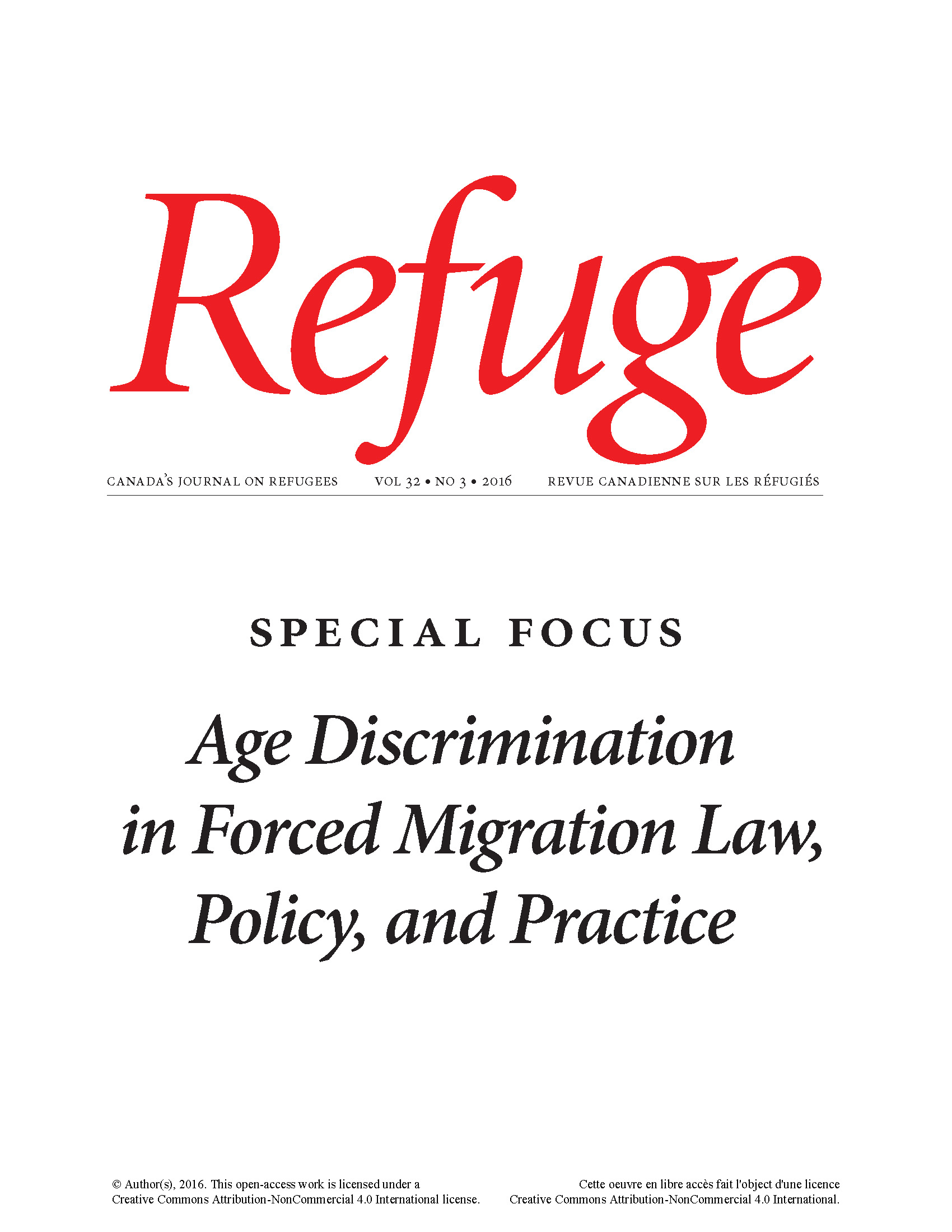Bureaucratic Birthdates: Chronometric Old Age as Resource and Liability in U.S. Refugee Resettlement
DOI:
https://doi.org/10.25071/1920-7336.40347Keywords:
United States, birthdates, bureaucratic birthdates, chronometric age, age, seniors, refugee resettlement, employability, social securityAbstract
This article examines age in refugee resettlement by connecting it to the bureaucratic contexts in which refugees acquire and become categorized by birthdates found in their documents. Frequently used as an objective metric, chronometric age takes on new meaning in migration and determines access to work and welfare. This article traces the trajectory of age documents of refugees in a program for “seniors” (sixty and up) in Chicago, Illinois. Drawing upon anthropology and critical gerontology scholarship, I resituate chronometric age in the dynamic relationship between institutions and definitions of old age in the United States. My purpose is to call attention to the consequences of applying U.S. concepts of age to refugees with limited resources.
Metrics
Downloads
Published
How to Cite
Issue
Section
License
Copyright (c) 2016 Kimberly Seibel

This work is licensed under a Creative Commons Attribution-NonCommercial 4.0 International License.
Refuge authors retain the copyright over their work, and license it to the general public under the Creative Commons Attribution-Non Commercial License International (CC BY-NC 4.0). This license allows for non-commercial use, reproduction and adaption of the material in any medium or format, with proper attribution. For general information on Creative Commons licences, visit the Creative Commons site. For the CC BY-NC 4.0 license, review the human readable summary.







